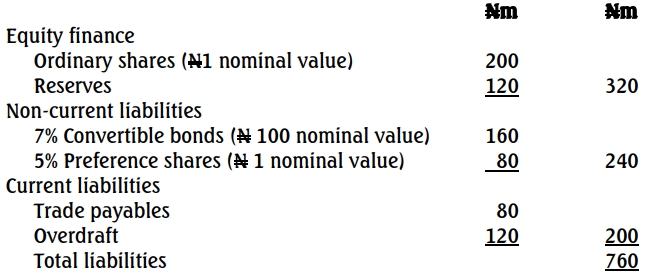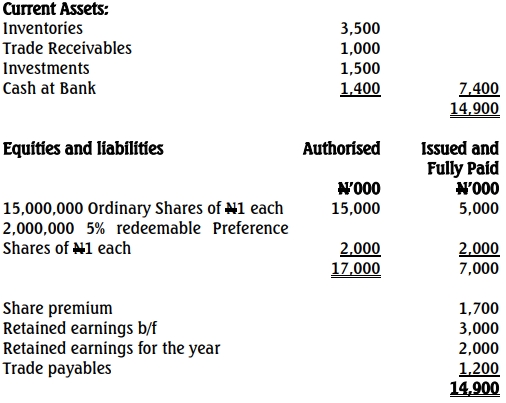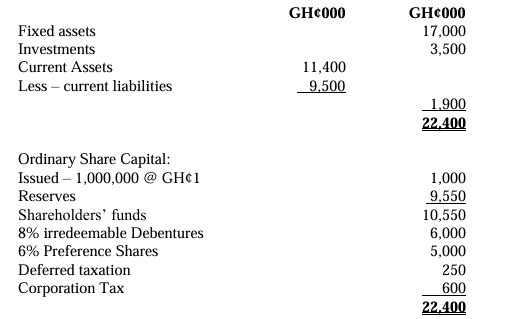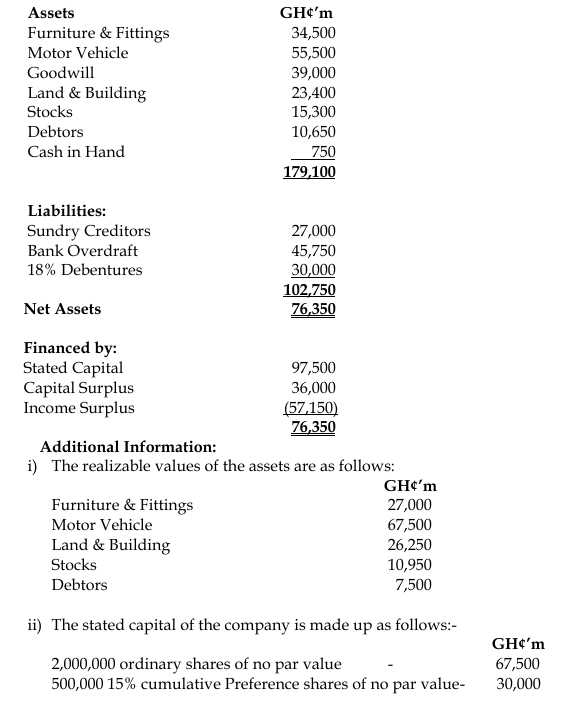- 20 Marks
CR – May 2015 – L3 – Q2 – Financial Instruments (IFRS 9, IAS 32, IAS 39)
Advise Alilerimba Limited on accounting for convertible bonds, revenue from handsets, and IAS 32 provisions.
Question
The following transactions relate to Alilerimba Limited:
- Convertible Bonds
- On July 1, 2011, Alilerimba Limited issued 400,000 convertible bonds with a 3-year tenure and a total fair value of N4 million, which is also the par value.
- The bonds carried an interest rate of 16% per annum, payable annually in arrears, while similar bonds without the conversion option carried an interest rate of 19% per annum on the same date.
- The company incurred 10% issue costs. If the investors did not convert to shares, the bonds would have been redeemed at par.
- At maturity (June 30, 2014), all bonds were converted into 1 million ordinary shares with a nominal value of N4 per share. No conversions were allowed before maturity.
- The directors are uncertain how to account for the bonds up to the date of conversion. They were informed that the effective interest rate, considering issue costs, was 24%.
- Revenue Recognition for Handsets
- Alilerimba purchases handsets at N120,000 each and sells them to customers at N90,000, provided the customers also purchase prepaid credit cards.
- Prepaid credit cards are sold for N12,600 each and expire after six months. The average unused credit per card at expiry is N1,800.
- Selling costs for the handsets are estimated at N600 per unit.
- Alilerimba also sells handsets to dealers for N50,000 each, invoicing them for this amount. Dealers are allowed to return the handsets until a service contract is signed by a customer. When a service contract is signed, the handset is given to the customer free of charge.
- Dealers receive a commission of N168,000 per customer connection. Net of the handset cost (N90,000), Alilerimba pays N78,000 to dealers for each customer connection.
- Handsets cannot be sold separately by dealers, and the service contract has a 12-month duration. Dealers do not sell prepaid phones, and Alilerimba earns monthly revenue from the service contracts.
- The Chief Operating Officer, a non-accountant, has requested an explanation of the accounting principles and practices to apply for handset purchases and revenue recognition.
- Preference Shares
- Alilerimba Limited issued 8% preference shares with a redemption feature that entitles holders to receive cash.
Required:
Advise the directors of Alilerimba Limited on:
(a) The accounting treatment for the convertible bonds. (12 Marks)
(b) The accounting principles and practices to apply for the purchase of handsets and recognition of revenue from customers and dealers. (6 Marks)
(c) The provisions of IAS 32 regarding the presentation in financial statements of financial instruments entitling holders to receive cash with a redemption feature. (2 Marks)
(Total: 20 Marks)
Find Related Questions by Tags, levels, etc.
- Tags: Convertible Bonds, Financial instruments, IAS 18, IAS 32, Preference shares, Revenue Recognition
- Level: Level 3





